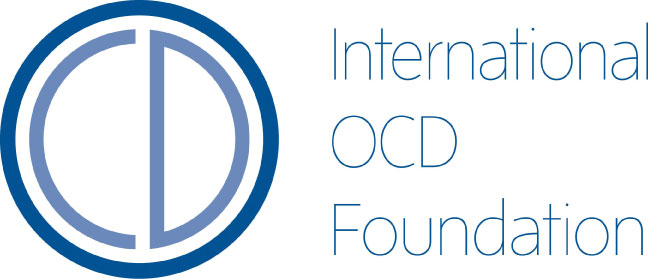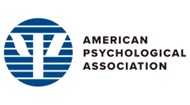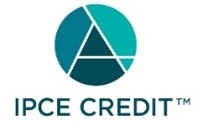Learning Management System User Guide Click Here
Please contact Lynda Reid at mghcme@mgh.harvard.edu or 866-644-7792 with questions.
Registration Deadline: May 19, 2025
This interactive course offers an overview of cognitive behavioral therapy (CBT) for children and adolescents with obsessive-compulsive disorder (OCD). It is led by CBT experts Aude Henin, PhD, and Dina Hirshfeld-Becker, PhD.
The course reviews diagnostic criteria for OCD, the impact of common comorbidities, the differentiation of OCD from other psychiatric disorders of childhood, strategies to combat treatment non-adherence, and much more. The course also focuses on evidence-based CBT interventions such as psychoeducation, cognitive strategies, and exposure and response prevention (E/RP).
The course includes an array of resources, videos, and other materials to guide you through your learning experience. All content and assignments can be completed whenever your schedule allows. Weekly call-in times allow faculty to hear and respond to your questions directly, and an interactive discussion board lets you post your own questions and interact with peers from across the United States and around the world. Plus, the course is accessible via desktop, laptop, smartphone or tablet.
Course materials are available beginning on May 5, 2025, and all online coursework must be completed by June 16, 2025.
Presented in collaboration with:

Registration Deadline: May 19, 2025
Physicians and Doctoral-level Professionals: $445.00
Other Professionals: $345.00
Refunds will be issued for cancellation requests made during the first week of the course, but an administrative fee of $25.00 will be deducted from your refund. Cancellation requests made during the second week will receive credit toward a future offering of the same course. No refunds or credits will be granted after May 19, 2025.
Week Start Date | Date of Q&A | Time of Q&A | Faculty Name |
|---|---|---|---|
Week 1: 5/5/2025 | 5/12/2025 | 2:00-2:30PM EST | Dina Hirshfled-Becker, PhD |
Week 2: 5/12/2025 | 5/19/2025 | 2:00-2:30PM EST | Aude Henin, PhD |
Week 3: 5/19/2025 | 5/27/2025 | 2:00-2:30PM EST | Dina Hirshfled-Becker, PhD |
Week 4: 5/26/2025 | 6/2/2025 | 2:00-2:30PM EST | Aude Henin, PhD |
This program is intended for:
Participants should have a basic understanding of CBT principles and some experience working with children and adolescents.
At the end of this program, participants will be able to:
In support of improving patient care, MGH Institute of Health Professions is jointly accredited by the Accreditation Council for Continuing Medical Education (ACCME), the Accreditation Council for Pharmacy Education (ACPE), and the American Nurses Credentialing Center (ANCC) to provide continuing education for the healthcare team.
13.50 Psychologists

Continuing Education (CE) credits for psychologists are provided through the co-sponsorship of the American Psychological Association (APA) Office of Continuing Education in Psychology (CEP). The APA CEP Office maintains responsibility for the content of the programs. MGH Institute of Health Professions designates this activity for 13.50 CE credit.
13.50 Physicians
MGH Institute of Health Professions designates this live activity for a maximum of 13.50 AMA PRA Category 1 Credits ™. Physicians should claim only credit commensurate with the extent of their participation in this activity.
13.50 Nursing Contact Hours
MGH Institute of Health Professions designates this activity for 13.50 contact hours for nurses.
13.50 Social Workers

As a Jointly Accredited Organization, the MGH Institute of Health Professions is approved to offer social work continuing education by the Association of Social Work Boards (ASWB) Approved Continuing Education (ACE) program. Organizations, not individual courses, are approved under this program. State and provincial regulatory boards have the final authority to determine whether an individual course may be accepted for continuing education credit. MGH Institute of Health Professions maintains responsibility for this course. Social workers completing this course receive 13.50 clock hours for continuing education credits.
13.50 IPCE Credit

This activity was planned by and for the healthcare team, and learners will receive 13.50 Interprofessional Continuing Education (IPCE) credits for learning and change.
Participants must complete each week sequentially and while completing all components of each week to receive credit, including:
Session 1 | Diagnosis and Assessment Key Points:
|
Session 2 | Cognitive-Behavioral Interventions Key Points:
|
Session 3 | Exposure and Response Prevention (E/RP) Key Points:
|
Session 4 | Common Issues in Treatment Key Points:
|
David H. Rubin, MD, reviewer
Jane Pimental, MPH
Susan E. Sprich, PhD, psychologist reviewer
Aude Henin, PhD
Dina Hirshfeld-Becker, PhD
ARCHIVED DISCLOSURES
Disclosure Information
In accordance with the disclosure policy of McLean Hospital as well as guidelines set forth by the Accreditation Council on Continuing Medical Education, all people in control of educational content, including speakers, course directors, planners, and reviewers, have been asked to disclose all relevant financial relationships with commercial interests of both themselves and their spouses/partners over the past 12 months, as defined below:
Commercial Interest
The ACCME defines a “commercial interest” as any entity producing, marketing, re-selling, or distributing healthcare goods or services, used on, or consumed by, patients. The ACCME does not consider providers of clinical service directly to patients to be commercial interests. For more information, visit www.accme.org.
Financial relationships
Financial relationships are those relationships in which the individual benefits by receiving a salary, royalty, intellectual property rights, consulting fee, honoraria, ownership interest (e.g., stocks, stock options, or other ownership interest, excluding diversified mutual funds), or other financial benefit. Financial benefits are usually associated with roles such as employment, management position, independent contractor (including contracted research), consulting, speaking and teaching, membership on advisory committees or review panels, board membership, and other activities from which remuneration is received, or expected. ACCME considers the relationships of the person involved in the CME activity to include the financial relationships of a spouse or partner.
Relevant financial relationships
ACCME focuses on financial relationships with commercial interests in the 12-month period preceding the time that the individual is being asked to assume a role controlling the content of the CME activity. ACCME has not set a minimal dollar amount for relationships to be significant. Inherent in any amount is the incentive to maintain or increase the value of the relationship. The ACCME defines “’ relevant’ financial relationships” as financial relationships in any amount occurring within the past 12 months that create a conflict of interest.
Conflict of Interest
Circumstances create a conflict of interest when an individual has an opportunity to affect CME content about products or services of a commercial interest with which he/she has a financial relationship.
The following planners, speakers, and content reviewers, on behalf of themselves and their spouse or partner, have reported financial relationships with an entity producing, marketing, re-selling, or distributing healthcare goods or services (relevant to the content of this activity) consumed by, or used on, patients:
Susan Sprich, PhD
Royalties (Co-Author): Oxford University Press
Royalties (Co-Edited Book): Springer
Honoraria (Associate Editors): Association for Behavioral and Cognitive Therapies (ABCT)
Jamie Micco, PhD
Royalties: New Harbinger Publishers
All other individuals including course directors, planners, reviewers, faculty, staff, etc., who are in a position to control the content of this educational activity have, on behalf of themselves and their spouse or partner, reported no financial relationships related to the content of this activity.
Disclosure Information
In accordance with the disclosure policy of McLean Hospital as well as guidelines set forth by the Accreditation Council on Continuing Medical Education, all people in control of educational content, including speakers, course directors, planners, and reviewers, have been asked to disclose all financial relationships with ineligible companies for the past 24 months, as defined below:
Ineligible Companies
The ACCME defines an “Ineligible company” as “those whose primary business is producing, marketing, selling, re-selling, or distributing healthcare products used by or on patients.” For more information, visit accme.org/standards
Financial Relationships
Financial relationships are those relationships in which the individual benefits by receiving a salary, royalty, intellectual property rights, consulting fee, honoraria, ownership interest (e.g., stocks, stock options, or other ownership interest, excluding diversified mutual funds), or other financial benefit. Financial benefits are usually associated with roles such as employment, management position, independent contractor (including contracted research), consulting, speaking and teaching, membership on advisory committees or review panels, board membership, and other activities from which remuneration is received, or expected.
Mitigation of Financial Relationships
All financial relationships are reviewed to determine which ones are relevant, and then measures are taken to mitigate all relevant financial relationships and ensure that they do not insert commercial bias into the content of the education.
The following planners, speakers, content reviewers, and others in control of educational content have reported financial relationships with ineligible companies over the past 24 months. Measures have been taken to mitigate the impact of these financial relationships on the educational content and ensure that they do not insert commercial bias into the content of this education.
Aude Henin, PhD
Consulting Fee: Clintara, Alkermes
Royalties: Oxford University Press
All other individuals in a position to control the content of this educational activity have reported no financial relationships with ineligible companies.
This activity has been planned and implemented in accordance with the accreditation requirements and policies of the Accreditation Council for Continuing Medical Education (ACCME) through the joint providership of McLean Hospital and Massachusetts General Hospital. McLean Hospital is accredited by the ACCME to provide continuing medical education for physicians.
McLean Hospital designates this live activity for a maximum of 13.50 AMA PRA Category 1 Credit™. Physicians should only claim credit commensurate with the extent of their participation in the activity.
Massachusetts General Laws, Chapter 13, sections 13, 14, 14A, 15 and 15D and Chapter 112, sections 74 through 81C authorize the Board of Registration in Nursing to regulate nursing practice and education.
This program meets the requirements of the Massachusetts Board of Registration in Nursing (244 CMR 5.00) for 13.50 contact hours of nursing continuing education credit.
Advance practice nurses, please note: Educational activities which meet the requirements of the ACCME (such as this activity) count towards 50% of the nursing requirement for ANCC accreditation.
The Collaborative of NASW, Boston College, and Simmons College Schools of Social Work authorizes social work continuing education credits for courses, workshops, and educational programs that meet the criteria outlined in 258 CMR of the Massachusetts Board of Registration of Social Workers
This program has been approved for 13.50 Social Work Continuing Education hours for relicensure, in accordance with 258 CMR.
This course allows other providers to claim a Participation Certificate upon successful completion of this course.
Participation Certificates will specify the title, location, type of activity, date of activity, and number of AMA PRA Category 1 Credit™ associated with the activity. Providers should check with their regulatory agencies to determine ways in which AMA PRA Category 1 Credit™ may or may not fulfill continuing education requirements. Providers should also consider saving copies of brochures, agenda, and other supporting documents.The Massachusetts General Hospital Department of Psychiatry is approved by the American Psychological Association to sponsor continuing education for psychologists.
The Massachusetts General Hospital Department of Psychiatry maintains responsibility for this program and its content. This offering meets the criteria for 13.50 Continuing Education (CE) credits per presentation for psychologists.
Release Date: September 6, 2016
Expiration Date: April 17, 2027
Review Date: May 15, 2023 by Robert Althoff, MD, PhD
We have a dedicated staff member who is available by phone 5 days per week between 8 am and 5 pm by calling 866-644-7792 or email at mghcme@mgh.harvard.edu. All inquiries will be dealt with in a timely (within one business day) and professional manner. Requests for credits or refunds will be reviewed by the Director of the Division of Professional and Public Education, Massachusetts General Hospital. Please refer to our cancellation policy for additional information.”